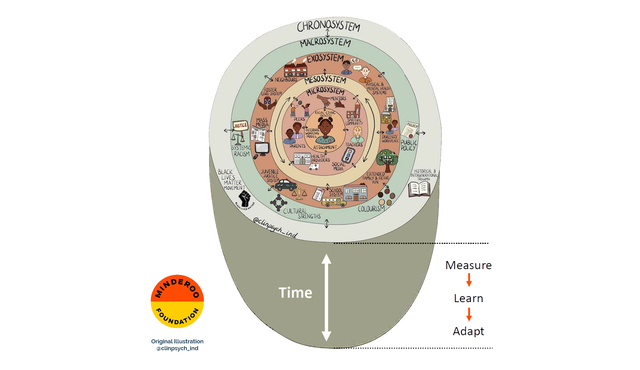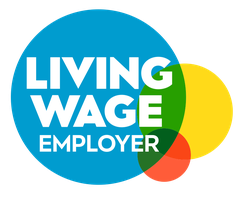Scaling Deep for Wider Impact : Reach Foundation and Minderoo Foundation

This September, Place Matters convened the first session of a community of practice bringing together pioneering organisations using place-based approaches for early childhood outcomes. There is no shortage of alliances and gatherings in the early years sector and each of these organisations has extensive networks of their own; what participants of this community of practice are looking for however, are opportunities to connect, share learning and join-up their influencing work, around the combination of both place-based work and broader systems change.
Participants in Place Matters’ Early Years Community of Practice:
- Blackpool Better Start
- Bradford Birth to 19 and 50 Things to Do Before You’re Five
- Nottingham Trent University - Getting School Ready
- Reach Foundation
- Save the Children - Tower Hamlets
- Sheffield Early Learning Community
- Thrive at Five
- Thrive in Northern Ireland
On October 17th, Mei Lim of Reach Foundation (Feltham, London) and one of the community of practice members hosted the first study visit which included a shared learning session with Penny Dakin and Juan Larranga of Minderoo Foundation, Australia. They are very different organisations but have a common commitment to transforming outcomes for children by working with communities at place level.
The reflective discussions during the study visit highlighted another common factor: the power of working at both ends of the telescope: ‘scaling deep’ at place level, while simultaneously seeking wider impact through field building efforts.
Scaling Deep
Reach began as an Academy in Feltham to ‘serve the highest levels of disadvantage in the community,’ now providing an all-through education from nursery to age 18, with a third of places ring-fenced for children on pupil’s premium. They soon realised that while great schools are necessary, they are not sufficient to enable every child to have ‘a life of choice and opportunity.’ This led to the development of the Reach Children’s Hub to provide direct support for children and families in the community, especially during a baby’s first 1001 days, and during critical transition periods such as the school holidays. Eventually, this developed into a collective impact model with a greater focus on scaling deep into the place to join up parents, local authority, education and service providers who are all working along the cradle to career continuum but without enough communication, let alone coordination.
They do this both through defined initiatives such as the Feltham Convening Partnership as well as informally by building on their existing relationships, and this work is funded separately to the Academy, mostly through philanthropic grants; the Reach Foundation is an independent registered charity. While some have raised concerns that playing this convening role will give the local authority an excuse not to invest in the needs of the community, they see the opposite effect: local authorities and national programmes like Family Hubs come to them more readily with the confidence that there is a functioning and joined up infrastructure to work with and to fund. In addition, their community based work enhances their impact as a school, and just last week, the Academy was judged Outstanding in all six categories. Scaling deep for Reach Foundation has meant extending their work as an academy to fill the need for the local system to be much better connected, enabling other providers’ work to be better informed and more impactful for children and families.
Minderoo Foundation is one of Australia’s largest philanthropic foundations with a vision that ‘all children in Australia will reach their full potential in thriving communities.’ They work at both ends of the telescope by engaging deeply both in place-based programs, as well as driving systems change, convening and forming strong alliances within the early childhood development sector. They have resisted the temptation to scale in the conventional sense of ever larger numbers, choosing to focus on fewer (15-20) places by 2030, but ‘scaling deep’ in each of these places. By this, they mean that they will work with communities in each place to develop partnerships across the whole eco-system, with public services, all levels of government, and businesses to better coordinate local services and shift local systems towards meaningful population level changes for children and families.
For wider impact
Both Minderoo Foundation and Reach Foundation have realised that while place-based work is necessary, it is not sufficient for sustained systems change. In their own ways, leveraging their unique assets and experiences, they are finding ways to influence wider practice and policy beyond their areas of deep place-based work, building up the wider national field of the early years sector.
Through the ‘Cradle to Career Partnership,’ Reach Foundation are working with 40 schools and trusts across the country to build their capacity to be the convener or ‘backbone’ of place-based models for cradle to career support in their communities. Schools hold many of the attributes necessary for a convener, including relationships with children and families, facilities and resources, and a long-term commitment to the place, but they have not been incentivised to work outside the defined constraints of ‘education,’ requiring a significant shift in mindset and practices. A recent conference of schools participating in the Cradle to Career Partnership showed the passion of those involved, and their resourcefulness in finding resources and capacity to do this work despite little additional funding but with a great deal of conviction for the whole-child, whole-school, whole-community approach.
Minderoo Foundation is a key partner in a unique partnership between community organisations, philanthropy and the state government of Western Australia (WA) called the Early Years Partnership. It is a 10 year partnership with AUD49 million of funding from both philanthropy and the WA government to support four communities. While each place effort is driven by the needs and ambitions unique to their context, they have applied some common principles and approaches such as ‘scaling deep’ to engage the whole eco-system involved in early years, a convener or backbone organisation providing coordination leadership, and communities accessing more coherent data about their communities. Minderoo Foundation funded data analytics capability to join up data from the key services including education, health and local government, for the first time providing communities and services a coherent, data driven picture of issues and opportunities. The data and learning from these place-based efforts will inform many other place-based initiatives across the country.
Equity and Exceptionality
Too often we hear about the challenges of finding funding for the invaluable but often invisible work of convening and coordinating. Whether it’s called the backbone, connective tissue, invisible wiring, or enabling infrastructure, both Reach and Minderoo Foundation’s work are evidence of how critical this role is, not just for deeper outcomes in place but also for wider systems impact and influence. They also demonstrate that mindsets and core principles are just as important as skills and capacity to carry out this role effectively.
Mei Lim reflected that equity informed by community organising has been for a long time, a fundamental and foundational principle to their convening work, and their ability to bring the voice of parents and young people to the table in a genuinely equitable way alongside education, health and other services has been instrumental.
Along with equity, another principle of the Early Years Partnership in Western Australia has been exceptionalism, not for the usual groups that hold power, but to make exceptions to the rules and flex rigid policies when necessary to allow communities and public services to loosen and dislodge some of the deep roots of inequality.
The day with Reach and Minderoo Foundations was a good reminder of the many essential and interlinked ingredients of systems change.
Header Image : Adapted diagram provided by Minderoo Foundation on 'What does ‘Scaling Deep’ mean?' Original illustration by @clinpsych_ind

